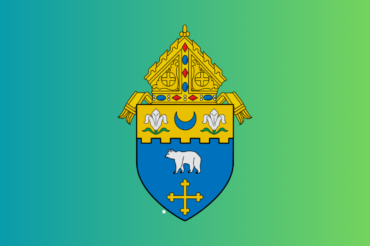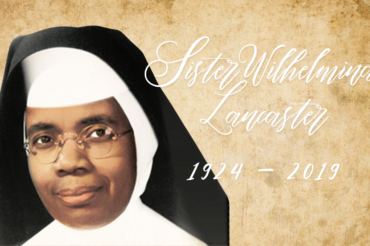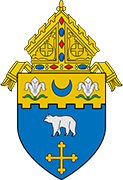Life in Abundance
“The thief comes only to steal and kill and destroy; I came that they may have life, and have it abundantly.” John 10:10
Around Easter every year there is often a negative story in the media of some sort about Christianity—a “downer” just as we prepare to celebrate the holiest and happiest time of the Christian year. This time it came in the form of the latest Gallup survey on religion. According to Gallup, only 50% of Americans now belong to a church (Catholic or Protestant), a drop from 70% who were church members in 1999.
There were different propositions for what has been happening over the last two decades: the rise in the “nones,” those who have no religious affiliation; growing distrust in institutions in general, and churches in particular; the delay and steep drop-off of those who are getting married and having children; the scandals in the church; the “spiritual but not religious” attitude of many; the phenomenon among the younger generation to not be “joiners” of organizations, etc. Whatever it is, fewer people are members of a church, and this should make us sad.
Why? Because, without the ekklesia, the people God has “called out” to be his own, we cannot fully receive the “life in abundance” that God wishes all to have. Even in the Old Testament, God acted in the history and life of “a people” that he had gathered and made his own, the descendants of Abraham, the People of Israel. Establishing a new covenant, Christ formed a new people of that covenant, the Church, the fullness of which subsists in the Catholic Church. It is through this new People of God that Christ gathers humanity into his Kingdom, bestowing a new and abundant life brought about by the Holy Spirit through the sacraments. In the Bible, one is never saved in isolation, but as a part of God’s people.
But there is more to reflect on and to own. If the Church is the community in which God bestows Christ’s new life in abundance, it is not evident to many. Certainly, the terrible clergy sexual abuse scandals play a part in obscuring this, but the Gallup survey suggests that there are many other significant causes for the decline in religious practice. And so, we might ask some hard questions. Does our new life in Christ make any difference? Is it evident? Does it bring us joy? Do we speak of it with others, even in our own families? Another indicator is Sunday Mass attendance.
Sunday Mass is a barometer of the Church’s spiritual health. It is here that God’s family does what is most important: worship God in gratitude, adoration, and praise, and have “life in abundance” bestowed upon it: “I am the living bread which came down from heaven; if any one eats this bread, he will live forever; and the bread which I shall give for the life of the world is my flesh. … Truly, truly, I say to you, unless you eat the flesh of the Son of man and drink his blood, you have no life in you …” (Jn 6:51, 53). It is here that we are saved and renew our new life in Christ so that we can abundantly live it out in the world.
Where Christ is alive and at work in hearts and churches it is quite evident what new life in abundance looks like. People are changed. There is joy. There is mutual love. There is witness, even martyrdom. Christ is alive. He is risen. All things are new. And, the Church grows.
In this Easter week, let us personally consider what difference Jesus Christ makes in our lives and make a choice to live fully for him who gave himself for us. And throughout this Diocesan Holy Year of Renewal in which we are embarking on a Mutually Shared Vision to be One Family: Restored in Christ-Equipped for Mission, let us each play a part in renewing the Church which Jesus created and to which we belong, that there be life in abundance.
+James V. Johnston, Jr.
Bishop of Kansas City-St. Joseph
Catholic Key, April 26, 2019 issue
Bishop Johnston’s April Prayer Intention
For all those affected by the Spring flooding.Pope Francis’ April Prayer Intention
For doctors and their humanitarian collaborators in war zones, who risk their lives to save the lives of others.





